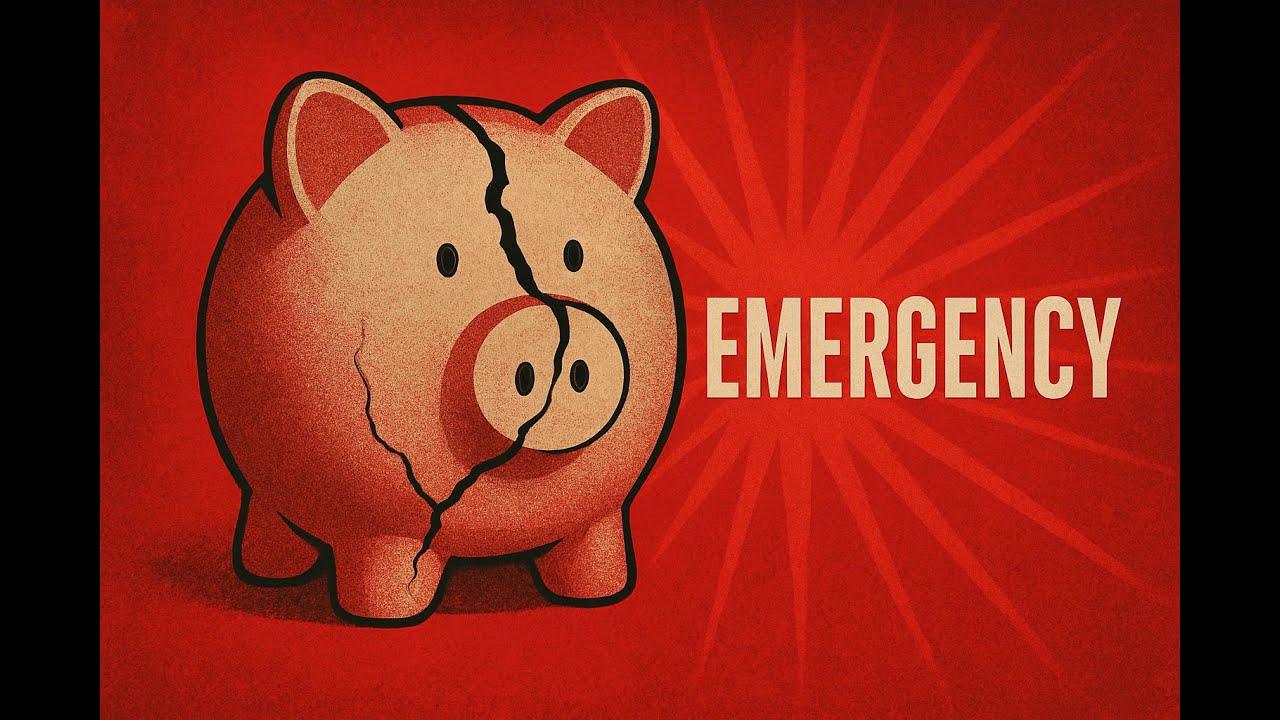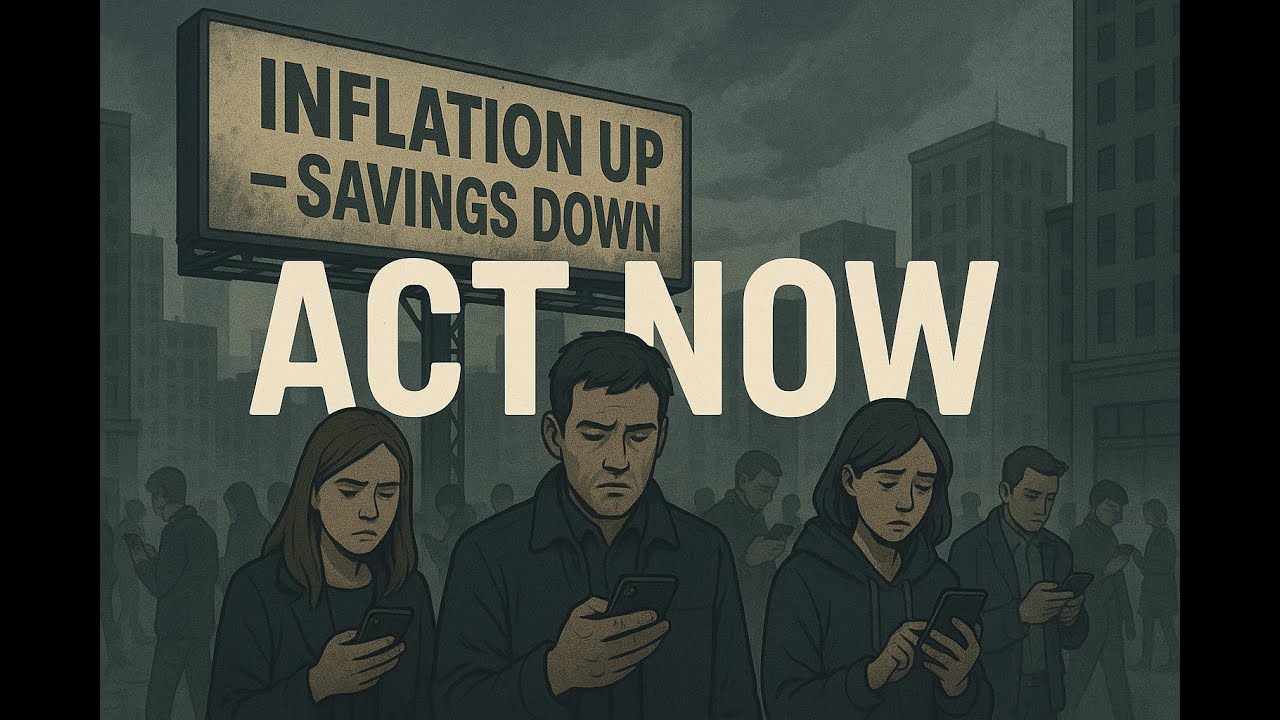Why Dave Ramsey Says Car Payments Are a Major Financial Mistake
Discover why Dave Ramsey warns against car loans, the hidden costs of financing vehicles, and how paying cash for cars can boost your wealth-building journey.
Why Dave Ramsey Says Car Payments Are a Major Financial Mistake
Car payments often feel like just another unavoidable monthly expense—similar to rent or groceries. However, financial expert Dave Ramsey challenges this common mindset, arguing that car payments are one of the biggest obstacles preventing people from building wealth. This article explores Ramsey’s perspective on car buying, the hidden costs of financing vehicles, and practical strategies to regain financial control by avoiding car loans.
Table of Contents
🚗 The Hidden Cost of Car Payments
Most people assume that driving a new or luxury car signals financial success. But Ramsey points out that this shiny vehicle might actually be a symbol of poor financial decisions. The average price of a new car in the U.S. has surged to over $48,000, and with that comes record-breaking monthly payments—averaging more than $740.
Many buyers commit to six- or seven-year loans just to afford these payments, which can feel like paying a second mortgage. The problem is that cars are rapidly depreciating assets, losing value from the moment they leave the dealership. This means that not only are buyers paying hefty interest charges, but they’re also funneling money into something that declines in worth every day.
💸 Dave Ramsey’s Simple Rule: Pay Cash for Cars
Ramsey’s financial advice on cars is straightforward but firm: always pay cash. Financing, leasing, or zero-percent interest deals may seem attractive, but if you don’t have the cash to buy a car outright, you simply cannot afford it.
He emphasizes that the “best car” is the one you can pay for entirely with cash. It doesn’t matter what friends or coworkers are driving—getting into debt for a car is a step backward, not forward. The pressure to keep up with others’ latest vehicles often leads to a cycle of debt and financial stress.
📊 The True Financial Impact of Car Loans
Consider this: a $742 monthly car payment equates to nearly $8,900 annually, not including insurance, fuel, registration, or repairs. This sizable portion of income could instead be directed toward paying off other debts, building emergency savings, or investing for retirement.
For example, investing $742 monthly into an S&P 500 index fund with an average 10% return over 20 years could grow to more than $560,000 (or approximately $310,000 adjusted for inflation). This starkly illustrates how money tied up in car loans could otherwise fuel long-term wealth accumulation.
🚙 Keep Vehicle Value Under Half Your Income
Ramsey introduces a rule that surprises many: the total value of all vehicles in a household should never exceed half of the annual household income. This includes all cars, trucks, boats, motorcycles, ATVs—anything with an engine.
For example, a household earning $70,000 annually should own vehicles valued at $35,000 or less combined. While this may seem conservative, it reflects the reality that cars depreciate quickly and incur ongoing costs like maintenance and insurance. Keeping vehicle expenses low frees up resources to invest in appreciating assets such as real estate or retirement accounts.
🤑 Why New Cars Are Only for Millionaires
Ramsey delivers a blunt perspective: you shouldn’t buy a brand-new car until your net worth exceeds one million dollars. The rationale is simple—new cars lose approximately 10% of their value the moment they’re driven off the lot, with depreciation reaching 20% or more within the first year.
For instance, a $40,000 new car could be worth only $32,000 or less after a year, not including taxes, insurance, or interest. Ramsey calls this loss the “stupid tax.” While reliability and safety are valid concerns, Ramsey advises buying the most reliable used vehicle you can afford with cash instead of acquiring debt for a new car.
🔧 Buying Smart Used Cars: Reliability Over Flash
Used cars can come with maintenance challenges, but Ramsey’s philosophy is about buying smart, not just cheap. He recommends:
-
Paying cash to avoid interest and sales tax costs
-
Researching makes and models known for longevity and low repair needs
-
Having a trusted mechanic inspect the vehicle before purchase
Though repairs may be necessary, these costs usually pale in comparison to the rapid depreciation and financing charges on new cars. Driving a paid-off vehicle allows for financial freedom and the ability to invest the money that would otherwise go to car loans.
💡 Breaking the Cycle of Car Loan Debt
Many individuals find themselves trapped in a cycle of rolling over car loans, paying interest for six to seven years, only to take on new loans for newer vehicles. This continuous debt cycle prevents wealth building and keeps people financially stuck.
Ramsey’s perspective reframes cars as tools for transportation rather than status symbols. They should not consume a significant portion of income or impede financial goals. Avoiding car loans is a critical step toward financial stability.
📈 The Power of Investing Instead of Financing
Imagine diverting the average $740 monthly car payment into investments instead. Over five years, with typical market returns, this could grow to nearly $50,000—enough to cover college tuition, a down payment on a home, or significantly reduce mortgage debt.
Choosing a reliable used car paid in full frees up funds that can be invested to generate exponential returns, accelerating wealth accumulation and financial independence.
🔑 Key Takeaways
-
Car payments are a significant wealth killer because of high costs and rapid depreciation.
-
Always pay cash for cars; if you can’t afford to buy it outright, you can’t afford the car.
-
The total value of vehicles should not exceed half of your household’s annual income.
-
New cars lose 10-20% of their value within the first year—only millionaires should consider buying new.
-
Buying reliable used cars with cash and investing the saved money builds long-term wealth.
-
Breaking free from car loan debt cycles is essential for financial health and peace of mind.
❓ Frequently Asked Questions
Is it really better to buy a used car instead of a new one?
Yes. Used cars typically cost less and avoid the steep initial depreciation new cars experience. Buying a reliable used vehicle with cash prevents interest payments and frees up money for investing.
What if I need a safe and reliable car for my family?
Safety and reliability are important. The key is to find the most dependable used car you can afford with cash, rather than going into debt for a new car. Research and inspections help ensure you get a vehicle that meets safety standards without breaking the bank.
How long should I keep a car to make it financially worthwhile?
The longer you keep a car, the more you spread out the initial cost and avoid repeated depreciation hits. A reliable used car paid in full can serve well for many years, especially with routine maintenance.
What if I can only afford a car loan right now?
If buying a car outright isn’t immediately possible, focus on saving aggressively and buying the cheapest reliable used car to minimize loan size and duration. Avoid luxury or new vehicles until financial circumstances improve.
How can I balance the need for transportation with financial goals?
Prioritize affordable, reliable vehicles that don’t strain your budget. Redirect funds that would go to car payments toward debt repayment, emergency savings, and investments to build a strong financial foundation.
🔚 Final Thoughts
Car payments have become normalized, but they often represent a significant barrier to financial freedom. By viewing vehicles as tools rather than status symbols, and by paying cash for reliable cars, individuals can avoid unnecessary debt and redirect funds toward building lasting wealth. Dave Ramsey’s approach, while strict, offers a clear path to breaking the cycle of car loan debt and achieving greater financial security.
🚀 Ready to Build Real Wealth?
You've learned the strategy – now it's time for action!
🎬 Get Weekly Financial Education
Join thousands learning smart money strategies that actually work.
📺 Subscribe to @StartWithCents
💎 Download Your Free Wealth-Building Tools
Get the exclusive "First Dollar Game Plan" – your step-by-step guide to financial freedom.
📚 Continue Your Financial Journey
Explore more money-smart articles and strategies.
📖 Read More Posts • 🏠 Homepage
💡 Remember: Knowledge without action is just entertainment. Take one step today!

